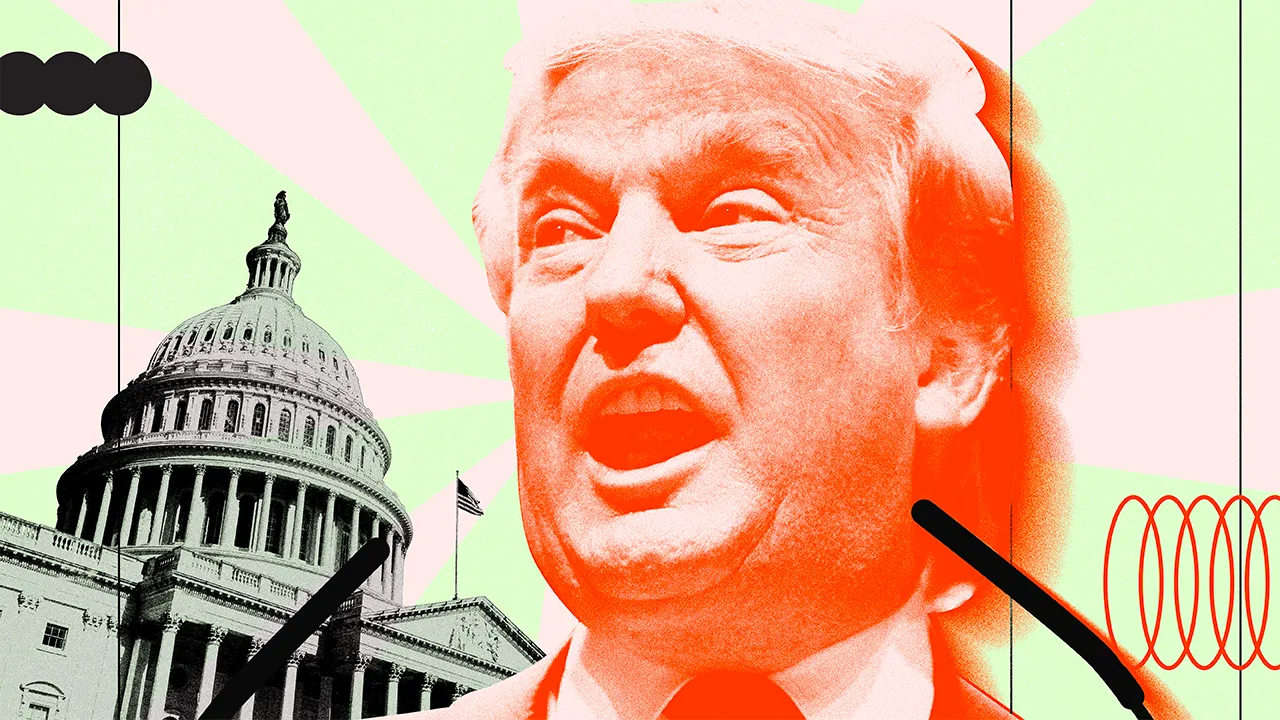Regulation
Trump Vs Biden Election Outcome Unlikely To Deter Bipartisan Support For Crypto

In a recent interview, the CEOs of the Blockchain Association and the Crypto Council for Innovation shared their insights on crypto regulation after the Trump vs. Biden election outcome. Kristen Smith, CEO of the Blockchain Association, and Sheila Warren, CEO of the Crypto Council for Innovation, both attended a significant roundtable discussion led by Democratic Congressman Ro Khanna.
The meeting, held across the street from the White House, saw the participation of several industry leaders and members of the Biden administration. It aimed to bridge the gap between crypto advocates and federal regulators. Smith highlighted the productive nature of the meeting, acknowledging Congressman Khanna’s efforts in organizing the event. “It was a really productive meeting,” she said.
Smith added, “For a long time, the crypto industry has felt like they haven’t been treated fairly by the Biden Administration, and I think this was a really important step towards increasing the dialogue between the agencies and us. We’re really excited to be a part of the discussion.”
Will Trump Vs. Biden Election Result Impact Crypto?
Moreover, recent political developments indicate a growing bipartisan interest in crypto. The Republican Party’s newly adopted policy platform explicitly supports crypto innovation. In addition, former President Donald Trump recently announced that he’ll speak at Bitcoin 2024 Conference.
This stance is resonating with voters, as Smith noted: “There was a poll from about two months ago that said one in five swing state voters considers cryptocurrency an important issue in the upcoming election. Of the Republican voters who were not planning to vote for Donald Trump, 33% are considering doing so because of his new pro-crypto stance.”
In addition, she noted that remarkable bipartisan support was noted for the FIT21 Act and SAB 121 revocation bill. Hence, Smith believes that the Trump vs. Biden election result won’t hinted the support garnered. She remarked, “We should have fairly strong bipartisan support in the House and the Senate and the White House regardless of which party is in charge.”
Furthermore, Warren echoed Smith’s sentiments on the increasing bipartisan support for crypto. Additionally, she emphasized the technology’s global nature and the need for the U.S. to keep pace with other nations. “This is a global technology. Other countries have not waited for the United States to act,” she said. “It’s about really architecting an internet for everybody.”
Both CEOs stressed that the interest in cryptocurrency transcends party lines. “Crypto tech is nonpartisan,” Smith asserted. “The issues and values of crypto align very well with those of the Democratic Party. It’s a very democratizing technology.” She also pointed out that despite the vocal anti-crypto stance of figures like Senator Elizabeth Warren and SEC Chair Gary Gensler, there is substantial support for crypto within the Democratic ranks.
Also Read: SEC SAB 121 Stands as House Upholds Presidential Veto
Insights Into The Roundtable Discussion
The roundtable discussion revealed key areas where the industry seeks progress. The points in highlight were market structure and stablecoin regulation. Moreover, Smith pointed out the promising legislative discussions around market structure.
She said, “The House’s version of this market structure legislation, FIT 21, was passed with overwhelming bipartisan support earlier this spring. The ball is now in the Senate’s court.” She also emphasized the importance of stablecoin regulation, noting the bipartisan interest in creating a regulatory framework for this sector.
Additionally, the Crypto Council CEO highlighted the industry’s challenges with regulatory clarity and the SEC’s aggressive stance under Gary Gensler‘s leadership. “It’s not just the lack of regulatory clarity that the industry has been talking about for many years now, which really hasn’t been changed or fixed,” she said.
Warren added, “It’s what that lack of clarity and the lack of congressional action has actually led to – namely, regulation by enforcement by the SEC.” Despite these challenges, both CEOs remain optimistic about the future of crypto regulation in the U.S.
The Crypto Council CEO noted the increasing interest from lawmakers outside the core committees of jurisdiction, which she views as forward progress. She stated, “We’re seeing folks in other committees of jurisdiction expressing a lot of interest. I think that’s forward progress and movement that we’re happy to see.”
Furthermore, the meeting also underscored the nonpartisan nature of the technology, with both sides expressing openness and eagerness to learn more. Warren was pleased with the tone of the discussion. She said, “I was really pleased tonally with how it went on both sides. I felt that it was a very productive and constructive conversation.”
Also Read: 5 Things To Know About Upcoming SAB 121 Bill Vote
The presented content may include the personal opinion of the author and is subject to market condition. Do your market research before investing in cryptocurrencies. The author or the publication does not hold any responsibility for your personal financial loss.
Regulation
USDC Issuer Circle Set To File IPO In April, Here’s All

USDC issuer Circle is reportedly set to file its initial public offering (IPO) in April as part of the firm’s plans to finally go public. The stablecoin issuer is allegedly already working with top financial institutions to achieve this move.
Circle To File IPO In Late April
According to a Fortune report, Circle is looking to file its IPO in late April, although the listing period remains uncertain. The report noted that when a company files to go public, its shares usually begin trading four weeks later, indicating that the listing could occur in May. However, there is also a scenario where the IPO process could drag on for months.
The stablecoin issuer is reportedly working with investment banks JPMorgan Chase and Citi to achieve its long-anticipated IPO. The firm had previously tried to go public in 2021 under a SPAC arrangement with a shell company.
The US SEC failed to sign off on this arrangement back then, and the company eventually scrapped these IPO plans by the end of 2022 when the crypto exchange FTX collapsed and the broader crypto market experienced a downturn.
Revelation about Circle’s IPO plans comes just days after the stablecoin issuer partnered with NYSE’s parent company to explore USDC’s use in traditional finance (TradFi). Meanwhile, the USDC stablecoin recently launched in Japan following approval from the country’s regulator. Notably, USDC is the first and only global dollar stablecoin approved under Japan’s stablecoin framework.
An Easier Path Now For The Stablecoin Issuer
Circle will likely face less resistance for its IPO plans under the current SEC administration. Under acting Chair Mark Uyeda, the Commission has shown its willingness to work hand in hand with crypto firms, which was missing under Gary Gensler’s administration.
US SEC Chair nominee Paul Atkins has also shown his willingness to change the approach that Gensler’s administration adopted towards crypto firms. During his nomination hearing, the SEC Chair nominee promised to prioritize providing regulatory clarity for the industry.
Circle’s IPO listing would be the biggest since the top crypto exchange Coinbase went public in 2021. Interestingly, Coinbase owns an equity stake in the crypto firm.
The firm’s USDC is currently the second-largest stablecoin by market cap, only behind Tether’s USDT. The stablecoin industry is heating up as more financial institutions look to develop their own stablecoin.
Donald Trump’s World Liberty Financial recently revealed plans to launch its USD1 stablecoin, while asset manager Fidelity is also considering doing so.
Disclaimer: The presented content may include the personal opinion of the author and is subject to market condition. Do your market research before investing in cryptocurrencies. The author or the publication does not hold any responsibility for your personal financial loss.
Regulation
Japan Set To Classify Cryptocurrencies As Financial Products, Here’s All

Cryptocurrency investors in Japan are bracing for impact following a plan to reclassify digital assets as financial products. While the plan has elicited excitement from cryptocurrency enthusiasts in the Far East, the ambitious plan will have to scale several legislative hurdles.
Japan Targets Reclassification Of Cryptocurrencies As Financial Products
According to a report by Nikkei, Japan’s Financial Services Agency (FSA) is inching toward classifying cryptocurrencies as financial products. Per the report, the FSA intends to achieve the reclassification via an amendment to the Financial Instruments and Exchange Act.
Currently, digital assets in Japan are considered crypto assets conferred with property rights and seen as payment means. Under the FSA’s plans, cryptocurrencies in Japan will be treated as financial products in the same manner as traditional financial products.
The FSA says it will adopt a slow and steady approach toward the reclassification, carrying out “a private expert study group” to test the waters. If everything goes according to plan, the FSA will submit the amended bill to Parliament in early 2026.
The classification of cryptocurrencies as financial products will have far-reaching consequences for the local ecosystem. Experts say treating cryptocurrencies as financial products will bring Japan closer to a crypto ETF launch amid a changing regulatory landscape.
Furthermore, the move may lower current cryptocurrency taxation for local investors since existing capital market rules will apply to the asset class.
A Fresh Bill For Crypto Insider Trading Is Underway
Apart from the reclassification, the FSA disclosed plans for new legislation against insider trading. The move flows treating cryptocurrencies as financial products and will strengthen existing investor protection rules.
“It is a direction to establish a new insider trading regulation that prohibits trading based on unpublished internal information,” said the FSA. “We will develop laws to prevent unfair transactions.”
However, Japan’s cryptocurrency scene is heating up to a boil, driven by local and international players. Last week, stablecoin issuer Circle secured approval from the FSA for USDC with top exchanges set to list the stablecoin.
Japan’s Metaplanet has tapped Eric Trump to join its Strategic Board of Advisors as it continues to load up Bitcoin.
Disclaimer: The presented content may include the personal opinion of the author and is subject to market condition. Do your market research before investing in cryptocurrencies. The author or the publication does not hold any responsibility for your personal financial loss.
Regulation
Kentucky Governor Signs Off On ‘Bitcoin Rights’ Bill, Strengthening Crypto Protections


In what is being dubbed a major development in the crypto regulation space, the Governor of the US state of Kentucky, Andy Beshear, has signed the ‘Bitcoin Rights’ bill into law. The law promises to safeguard protections for Bitcoin (BTC) users.
Bitcoin Rights Bill Comes Into Effect
Crypto regulations continue to evolve under pro-crypto US President Donald Trump’s administration. In the latest development, Kentucky has become the newest state to enshrine protections for digital asset users.
In an X post published on March 24, crypto advocacy group Satoshi Action Fund announced that Governor Beshear had signed the much-anticipated Bitcoin Rights bill into law. The post stated:
The right to self-custody, run a node, and use of digital assets is now protected for millions of Americans without fear of discrimination.
The bill was first introduced to the Kentucky House by Rep. Adam Bowling on February 19. According to the bill’s description, it seeks to safeguard users’ rights to use digital assets and self-custody wallets. Additionally, it aims to prohibit local zoning changes that discriminate against crypto mining operations.
The legislation outlines guidelines for running a digital asset node and excludes digital asset mining from money transmitter license requirements. It also clarifies that crypto mining or staking is not considered an offer or sale of securities.
On February 28, the bill passed Kentucky’s House of Representatives with a unanimous vote of all 91 representatives in favor. It later passed the Kentucky Senate on March 13, receiving backing from all 37 senators.
Kentucky’s proactive stance toward cryptocurrencies isn’t new. Earlier this year, the state became the 16th US state to introduce legislation seeking to create a Bitcoin strategic reserve.
Meanwhile, neighboring state Arizona is also joining the crypto movement. A recent X post by Bitcoin Laws revealed that Arizona’s House Rules Committee has passed two Bitcoin reserve bills — SB1373 and SB1025. These bills will now head to a full floor vote.
Renewed Optimism Under Trump Administration
Following Trump’s victory in the November presidential election, cryptocurrency regulations in the US are evolving rapidly, with many states introducing legislation aimed at strengthening their digital asset ecosystems and attracting crypto businesses.
Positive changes in crypto regulations are encouraging industry businesses to expand. For instance, leading crypto trading platform Coinbase recently announced plans to hire 1,000 employees in the US.
The Trump administration has also witnessed several lawsuits being dropped against major crypto entities, including Kraken, Coinbase, Gemini, and others. At press time, Bitcoin trades at $87,399, down 0.2% in the past 24 hours.

Featured Image from Unsplash.com, chart from TradingView.com

Editorial Process for bitcoinist is centered on delivering thoroughly researched, accurate, and unbiased content. We uphold strict sourcing standards, and each page undergoes diligent review by our team of top technology experts and seasoned editors. This process ensures the integrity, relevance, and value of our content for our readers.
-

 Altcoin24 hours ago
Altcoin24 hours agoCardano Price Eyes Massive Pump In May Following Cyclical Patern From 2024
-

 Market20 hours ago
Market20 hours agoBitcoin Bears Tighten Grip—Where’s the Next Support?
-

 Market19 hours ago
Market19 hours agoEthereum Price Weakens—Can Bulls Prevent a Major Breakdown?
-

 Ethereum15 hours ago
Ethereum15 hours agoEthereum Is ‘Completely Dead’ As An Investment: Hedge Fund
-

 Market9 hours ago
Market9 hours agoBitcoin Mining Faces Tariff Challenges as Hashrate Hits New ATH
-

 Market15 hours ago
Market15 hours agoThis Is How Dogecoin Price Reacted To Elon Musk’s Comment
-

 Regulation8 hours ago
Regulation8 hours agoUSDC Issuer Circle Set To File IPO In April, Here’s All
-

 Bitcoin14 hours ago
Bitcoin14 hours agoUS Macroeconomic Indicators This Week: NFP, JOLTS, & More





















✓ Share: